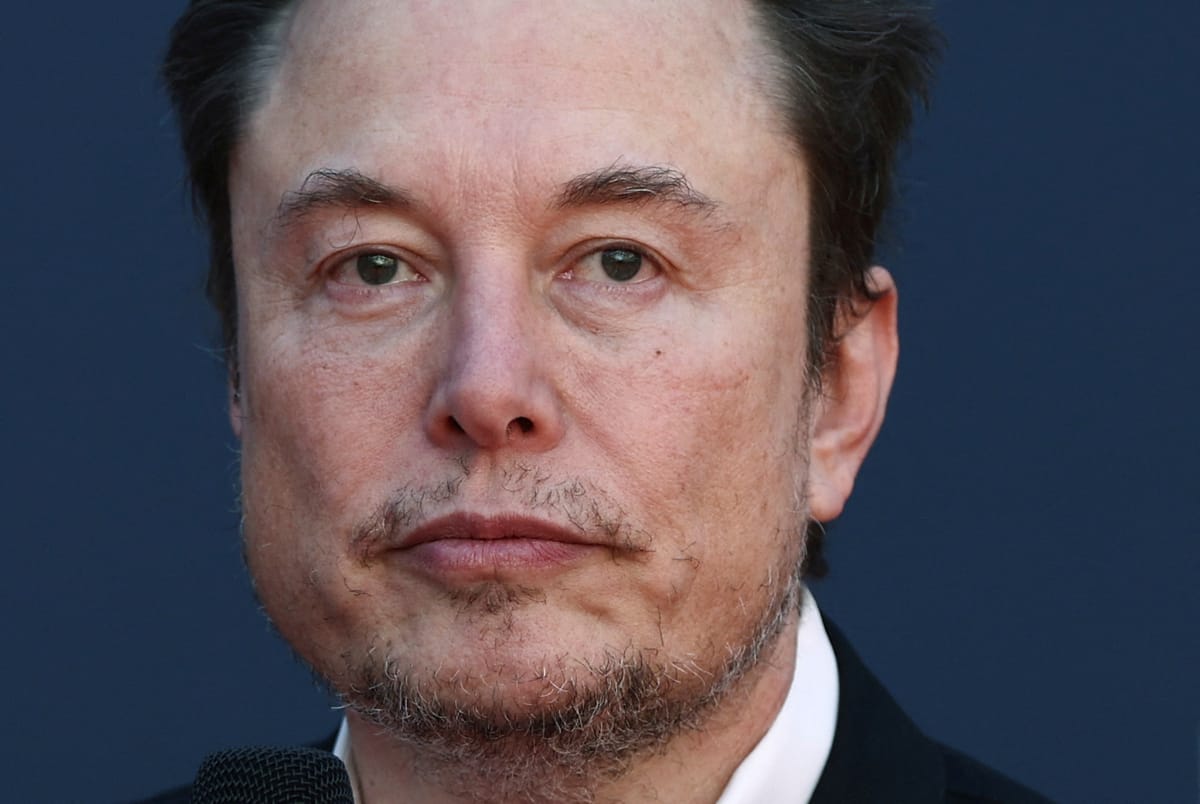Why is Elon Musk suing OpenAI and CEO Sam Altman?
Elon Musk is suing Microsoft-backed OpenAI and CEO Sam Altman.

A few minutes every morning is all you need.
Stay up to date on the world's Headlines and Human Stories. It's fun, it's factual, it's fluff-free.
The backstory: Back in 2022, OpenAI made a splash in the tech world with ChatGPT, an artificial intelligence (AI) chatbot that took off like wildfire, reaching 100 million users in just two months. This set off a frenzy among tech giants like Microsoft and Google, who raced to develop their own AI tools. Microsoft came up with the Bing chatbot, while Google launched Bard, which was later renamed Gemini. Businesses worldwide also hopped on the AI train, using these tools for tasks like summarizing documents and coding.
Elon Musk, the brain behind well-known ventures like Tesla, Neuralink and SpaceX, was among many voices expressing concerns about the rapid advancement of AI and the potential dangers it could pose. Musk co-founded OpenAI back in 2015, but he stepped down from the board in 2018 to avoid any conflicts with his companies. He also launched his own AI company, xAI, last July.
More recently: Musk has been in the spotlight left and right, thanks to the progress of Neuralink's brain chip technology and buying out Twitter (now X) for US$44 billion. Meanwhile, Sam Altman, CEO of OpenAI, faced a surprising turn of events when he was abruptly fired last November, only to return shortly afterward, leaving many in the tech world scratching their heads over what had happened. As for OpenAI, Microsoft first started investing in the company in 2019, and that investment has reportedly grown to about US$13 billion since then.
The development: Musk is suing Microsoft-backed OpenAI and Altman, saying they've strayed from their original goal of developing AI for the good of humanity. Musk's lawyers argue that in 2015, Altman and co-founder Greg Brockman approached Musk to create a non-profit AI lab. But, they say that OpenAI has now shifted its focus to making profits (specifically for its major backer, Microsoft) which violates the initial agreement.
The lawsuit says that OpenAI is focused on increasing Microsoft's profits rather than what's best for humanity, which is a breach of contract. Musk's team also said that OpenAI's release of GPT-4, a powerful language model, as essentially a product that serves Microsoft's commercial interests, also breaks the deal. Musk is asking the court to make OpenAI share its research with the public and stop Microsoft from profiting from it. He also wants GPT-4 and another advanced AI called Q* to be treated separately from OpenAI's deal with Microsoft.
OpenAI has said it "categorically disagrees" with the lawsuit, according to an internal memo seen by Bloomberg, and that Musk's arguments "may stem from Elon's regrets about not being involved with the company today."
Key comments:
The lawsuit was filed "to compel OpenAI to adhere to the Founding Agreement and return to its mission to develop AGI for the benefit of humanity, not to personally benefit the individual Defendants and the largest technology company in the world," said Elon Musk's lawyers.
"To this day, OpenAI, Inc.'s website continues to profess that its charter is to ensure that AGI benefits all of humanity.' In reality, however, OpenAI, Inc. has been transformed into a closed-source de facto subsidiary of the largest technology company in the world: Microsoft," said the lawsuit filing.
"Under its new Board, it is not just developing but is actually refining an AGI to maximize profits for Microsoft, rather than for the benefit of humanity," said the filing.
"Its technology, including GPT-4, is closed-source primarily to serve the proprietary commercial interests of Microsoft," said the filing.
"We expect this will have zero impact on AI development inside or outside of OpenAI, and would chalk it up to Musk seeking to get a slice of equity in a company he effectively founded but in which he holds no stake," said Giuseppe Sette, president and co-founder of market research firm Toggle AI.




Comments ()